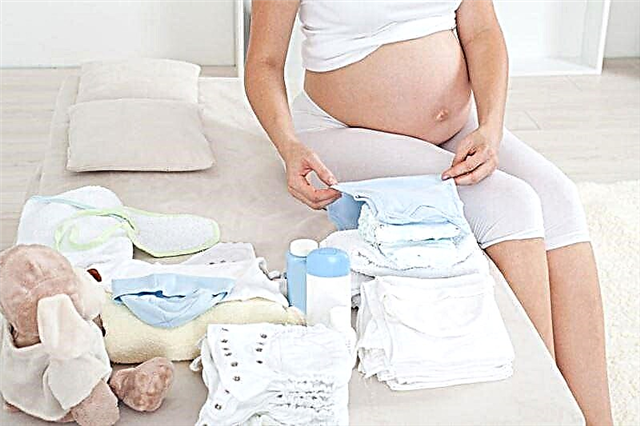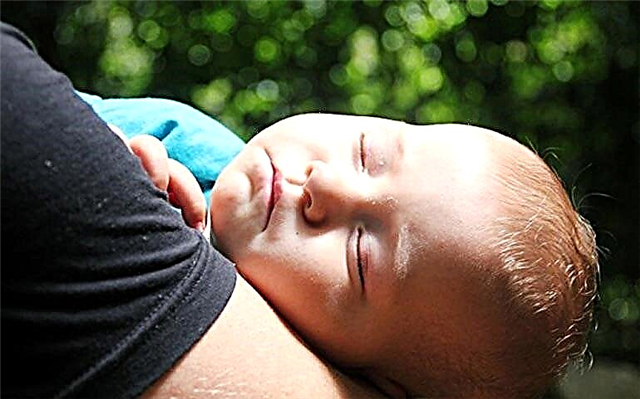
Honey is considered a useful product that adults often use to replace sweets and in the treatment of various diseases. In the days of our grandmothers, honey was safely given to the smallest (for example, they lubricated the nipple) and added to tea for colds. Nowadays, attitudes towards including honey in children's diets have changed. Therefore, modern mothers should know from how old it is permissible to give honey to babies and whether such a beekeeping product is useful for the child's body.


The benefits of honey
The use of honey contributes to the active growth and general development of the child's body.
- Since honey is a source of ascorbic acid and carotene, such a product is useful for immunity. With regular use of honey, children get sick much less often, and their body staunchly resists the attacks of viruses, thanks to which it is protected from the common cold, pharyngitis and other diseases. Especially often a recipe is used to stimulate the defenses, in which honey is combined with ginger and lemon.
- Honey has the ability to improve blood composition. Under its influence, the amount of hemoglobin increases and the well-being of a child with anemia improves.
- Honey has a calming and relaxing effect. Its use helps to fall asleep faster in the evening and sleep soundly throughout the night.
- The positive effects of honey on the digestive tract are known. The use of such a product promotes better absorption of food and its digestion, which prevents putrefactive processes in the intestines.
- Due to its analgesic and antiseptic effect, honey is often used for stomatitis.
- Honey is also quite popular at temperatures, since such a product has a diaphoretic and antipyretic effect. Most often, with ARVI with an elevated temperature, honey is added to cooled tea or warm milk.
- Thanks to honey, calcium and magnesium are better absorbed in the child's body, which has a positive effect on the condition of bones and teeth, and also prevents the appearance of scoliosis in schoolchildren.
- Honey has the ability to improve vision and increase its severity.
- If you give honey to a student, he will more successfully assimilate educational material.
- Eating honey as a treat less harmful to teeth than sugar.
- If the child regularly consumes honey when enuresis, this will help eliminate this problem.

The expectorant effect of honey is actively used when it is necessary to cure a cough. Such a sweet product actively affects this symptom of colds and other respiratory diseases.

For more information on the use of honey in the treatment of diseases in children, see the following video.
Harm
Some parents are surprised that there are age restrictions for acquaintance with honey, because they are sure that such a natural product cannot be harmful.
However, sometimes honey can pose a health hazard to the toddler:
- The active substances in honey can cause allergies in a child.
- Honey can cause botulism if the spores of the pathogen get into the nectar during harvesting. Such an infectious disease affects the nervous system and is very dangerous for the child's life.
- Fructose, which is contained in honey, can linger in the oral cavity, negatively affect the mucous membrane and provoke caries, so after eating such a sweet product, rinse your mouth.
- Since honey is a source of simple carbohydrates, this product should be limited if you are overweight.

At what age can a child be given honey
To understand when you can introduce a child to honey, you should consider the following points:
- The quality of this product in the days of our grandmothers was, without a doubt, high, but it is difficult to say exactly how honey is harvested and produced today. The composition of store or market honey does not always correspond to what is written on the jar, therefore, when buying, parents, one might say, play the lottery.
- Even honey obtained straight from the apiary, purchased from friends, can harm babies. Primarily due to the high concentration of nutrients.
- The ecological situation is gradually deteriorating, so you cannot be sure that you are giving your child honey from flowers that did not grow in a polluted place.
- Over the past few decades, the frequency of allergic reactions in children has doubled, due to environmental degradation and the frequent use of chemicals in the food industry. And since honey is classified as a highly allergenic product, it becomes clear why it should not be given to infants, and a one-year-old child should be introduced into the diet with extreme caution.

The general recommendations of doctors regarding the age at which children can taste honey are as follows:
- You cannot give such a product until a year.
- For babies aged 1-3 years, honey can be tried, but this is not recommended by most pediatricians.
- Three years of age is the border after which doctors are allowed to include honey in the children's diet. In this case, the product should be given in a small dose and rather rarely.
- From the age of 6, honey in the absence of allergies can be included in the child's menu more often.
As you can see, if possible, delaying acquaintance with honey until the age of 6-7 years will be the best solution. If parents themselves often use honey and want to treat the baby with this sweet from the age of 3, you can try to give such a product in small quantities.

In a situation when mothers or grandmothers start giving honey to children under 3 years old, they act at their own risk, since it is impossible to predict the baby's reaction to this product. In many cases, babies perceive this natural sweetness well, but there are also opposite situations, when honey turns into a real problem.
The opinion of Dr. Komarovsky
The renowned doctor is sure that honey should not be in the diet of children in the first year of life. Komarovsky believes that giving such a product to an infant under 12 months is very risky, since the effect is unpredictable.
Children over one year old, according to the popular pediatrician, can give honey in small quantities to replace other sweets. At the same time, it is important not to overdo it with the amount and be especially careful if parents are allergic to honey or poor tolerance for bee stings.
Komarovsky gives his comment on the inclusion of honey in the children's diet in the following video.
Features of the introduction of honey into the children's diet
- It is not recommended to treat a child with pure honey from the very beginning. At the first tests, it is advisable to add the product to your usual dishes.
- A good option is to add a few drops of honey to the water the child drinks. If there is no reaction to such drinking, the dosage can be increased.
- Most often, honey is added to tea, but such a drink should never be hot, because honey cannot be heated.
- You can also mix honey for a child with kefir or cottage cheese.
- Daily use of honey should be no longer than 1 month, after which a break of 2-3 weeks is required.
- If a child refuses to try honey, it is unacceptable to insist and force such a product.

How much honey to give to a child
- If mom dares to treat a baby with honey at the age of 1-3 years, a portion of such a treat per day should not exceed half a teaspoon. Moreover, it is advised to divide it into 2-3 receptions.
- Children 3-5 years old can be given up to 20 grams of honey a day (a little more than a tablespoon). It is also advised to divide the daily dose of such a sweet product several times.
- At the age of 6-9 years, it is permissible to increase the daily dose of honey to 50 grams (slightly more than 3 tablespoons).
- For children over 9 years old, the amount of honey consumed per day can be increased to 80 grams (this is about 5 tablespoons).

Contraindications
Do not give honey to a child:
- Under the age of one year.
- With exudative diathesis.
- With individual intolerance to the product.
- With diabetes mellitus.
How does honey allergy manifest?
The most common allergic reaction after consuming honey is a skin rash. They come in the form of a small rash or rather large blisters.
In addition, the skin may turn red or swollen. What hives look like, provoked by even a small amount of honey, you can see in the photo.
The baby may also have a respiratory reaction, such as shortness of breath, cough, sneezing, chest pain, sore throat, or runny nose. Sometimes an allergy to honey is manifested by swelling of the tongue and lips, profuse lacrimation, dizziness, nausea, diarrhea, fever, headaches.
If you experience any warning symptoms after consuming honey, you should see your doctor immediately. The pediatrician will prescribe the necessary medications, and you will have to refuse to include honey in the diet.
How to choose honey for a child
If you plan to give honey to children, buy only natural and fresh product. It can be presented in different varieties:
- Many children do not like brown buckwheat honey, because it has a specific taste with a bitter taste. However, such honey is considered the best option for colds or anemia.
- Most toddlers love the acacia and sweet clover honey because they are delicious and smell good. Acacia honey is considered less allergenic than other types. This product has a pronounced expectorant and sedative effect.
- Yellowish lime honey is also loved by many for its mild taste and pleasant aroma. Due to its bactericidal properties, it is often given to children with colds.


Try to get honey from a trusted beekeeper, as such a product on the market may turn out to be a fake (mixed with sugar).

Natural honey will initially have a liquid consistency, and by the end of autumn the product begins to crystallize, after which it does not return to a liquid state. In addition, natural honey will not delaminate, and if you drop it on a sheet of paper, it will not spread to the sides.


For more information on the properties of honey, see the following videos.
Find out if your child's weight is normal using the following calculator.



